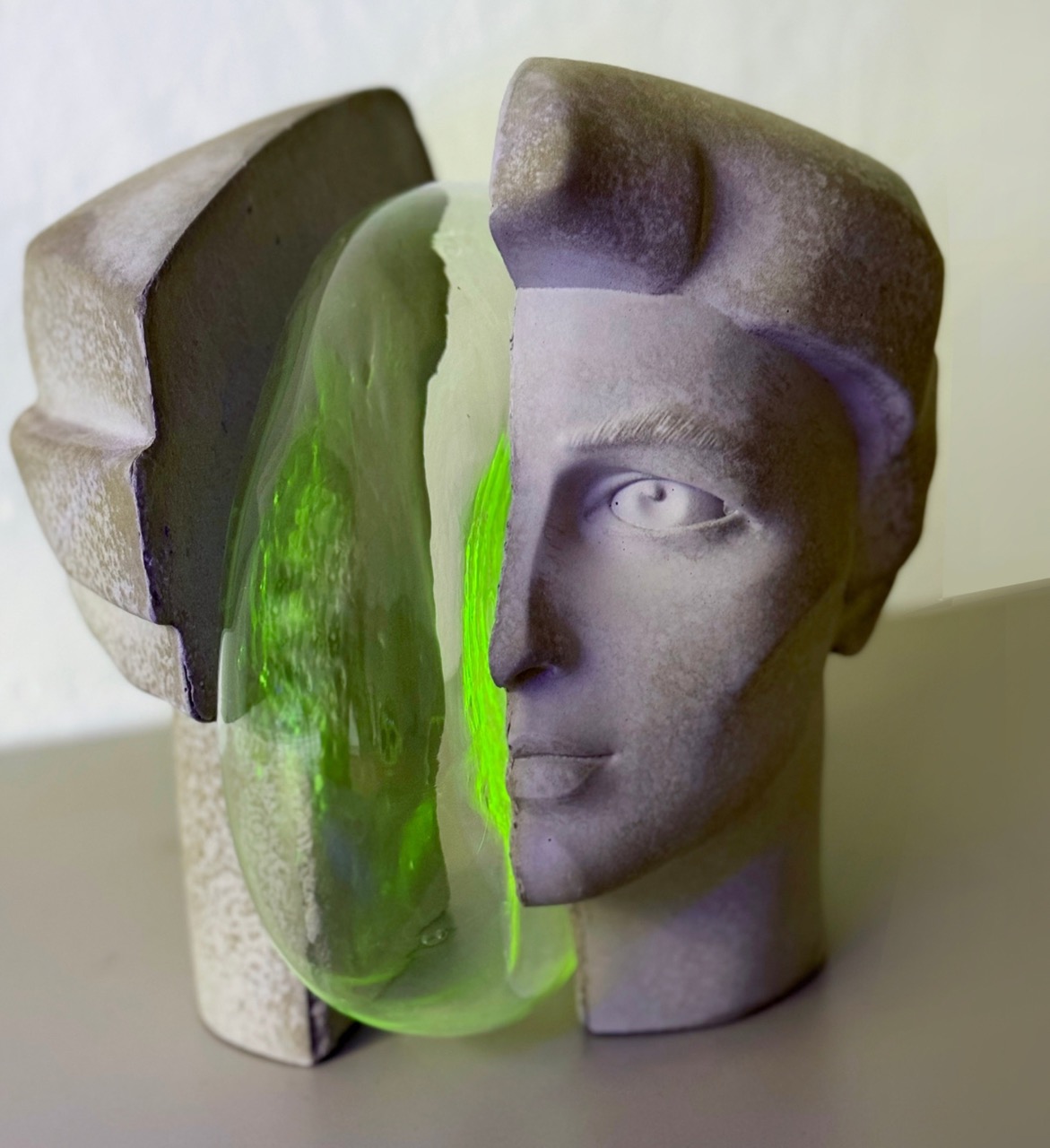



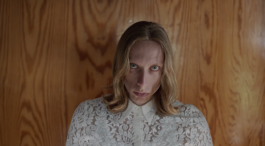
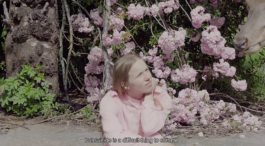
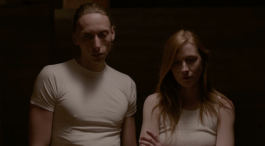
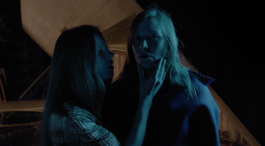
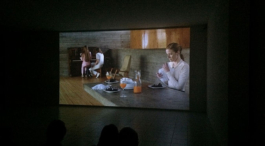
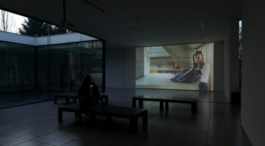
MELODICA, 2017. 2K, 27:29
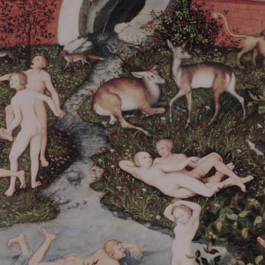
Three young actors, two woman and a man, conceived by your imagination and guided by your script, spend their days in the meditative, sun-filled, sprawling spaces of House Van Wassenhove, a concrete modernist architectural delight melted into the green environment that surrounds it, and set in the middle of Sint-Martens-Latem, one of the wealthiest municipalities of Belgium. The three young people have the air of luxurious, laid-back living. They fill their days with painting, playing piano, and eating clams, living in a kind of art enclave detached from the real world. This concealed, peaceful location can be read as a Garden of Eden. It feels as if we walk around in The Golden Age by Lucas Cranach the Elder, the painting that structures your film. As a whole, the setting is a separation from the general state of the world; an escape out of the accelerated Anthropocene; an antidote to the turbulent storm of world disorder; a fertile ground for artistic inspiration and introspection; a fitting place to contemplate our contradictory, toxic age of political conflicts, wealth inequality, and environmental degradation; to search for spiritual and religious significance. But, herein is the paradox: the three inhabitants protect themselves from any danger. But, is the danger not enclosed in this absence of danger? How can they contemplate about a world in which they do not participate? Is this idealized world as ideal as it looks? Is this triumph of love and art over war and misery, not straight up delusional?
Melodica completely convinced me of your sensitivity as an auteur - both as a writer and a director. You deliberately observe daily life and create drama of a high order of artistic integrity. As the British producer and dramatist Martin Esslin wrote in his book The Field of Drama: you, the director of a film, have the power to compel the spectator to look at certain things and to restrict the ability to look at others, which you want to conceal or withold. I like the way you control the tiniest gesture. How you masterfully create a state where characters operate in an enchanting, tender listlessness; and how you immerse us in a dark, often suicidal fairy tale bridging childishness and recognition with a veil of alienation and madness.
I was also touched by the sounds and the music - from natural recorded bird songs and harp, to strange synthetic noises. Reading the subtitles, I noticed two musicians, Stella Gotshtein and Omri Barel, were involved in the creation of this unique soundscape. Then you informed me about the intensive process of recording the sounds in Italy. Sometimes the soundscape provides a powerful ‘subtext’ indicating hidden thoughts and emotions of the characters. Sometimes it is used as antithetical to the visuals, co-existing in a dialectical relationship to each other. Also remarkable is how you diligently direct our attention towards thought-provoking questions: from underlying existential reflexivity, through which one comes to terms with notions of isolation, vanitas, meaning(lessness), the cosmos and the death; to (the breaking of) the self-awareness of the protagonists, and thus our own self-awareness… that moment when the performers look at us and we realize they are performing for us. The final meditations of the narrator muses in my head: “Je considère que je suis devenue philosophe à mes 28 ans. Et depuis je ne dors pas. Je compose souvent des réponses, mais là j’avance des questions derrière un miroir dans la nature, confuse de cette époque, notre époque.” In those last shots, we see the characters looking into the sky. It reminds me of the end of your video work Freedom in the Clouds where the female character, a researcher, is lying on the ground, gazing at what seems to be a utopian universe. It is true that in your films one can still dream to devise an optimistic antidote against the not-all-rosy reality.
While I am writing this letter, you are in Russia, somewhere amidst the mountains, completely ‘unwired’, to shoot your new film. All my best wishes for your upcoming, personal projects, Rachel. I am endlessly curious and looking forward to be touched - again and again - by your soul and creations.
Yours,
Sofie
Text by
Sofie Crabbé
art critic and curator